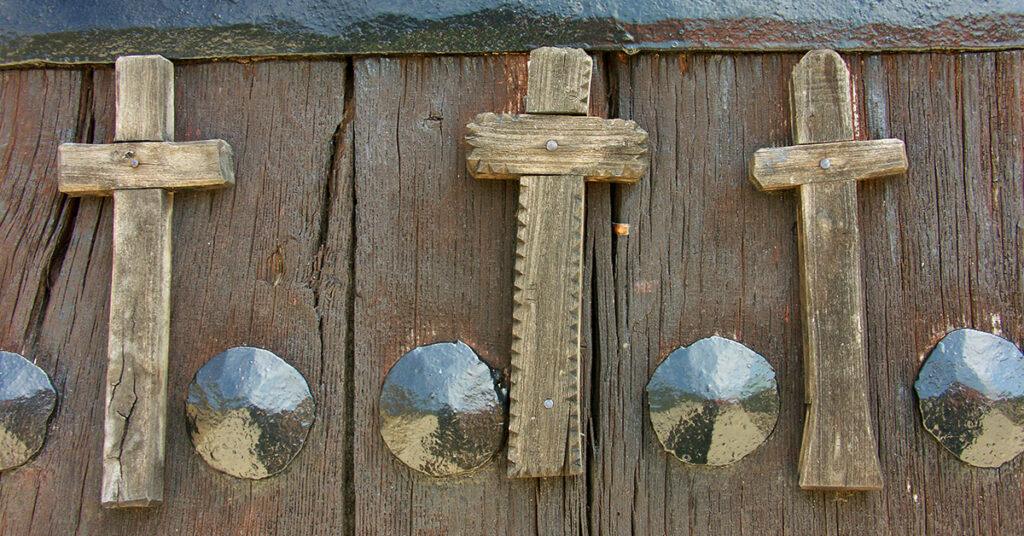Basque ethnography at a glance
Our ancestors believed that thunderstorms were the most common, known and feared expression of atmospheric violence: the home, livestock, harvest or life of people hung by a thread during the storm.
The belief was that the thunderstorm season began on 3 May and ended on 14 September, both of which were easy to remember as the festivities of the Holy Cross, the symbol of Christianity.
Therefore, daily entreaties – particularly calling for protection against hail that destroyed harvests in more humanised settings – were said in many of our chapels and parishes during those four months.
By contrast, the threat of hail was less important in remote spots or in the mountains and the focus was on lightning. There were many different formulas to protect against its fury. One of them, and the one that interests us, was the use of the common hawthorn (Crataegus monogyna, “elorri zuria” in Basque).
Colliers, shepherds, muleteers or anybody who could be caught up in a storm on heathland, knew that the best way to shelter was under hawthorn. Because the lightning could never reach there, as if it were a sacred spot. Precisely the opposite was to shelter under a chestnut tree or, even worse, under a beech tree, as they were thought to attract sparks.
Placing blessed crosses, made out of hawthorn, on mountain huts was considered to be essential. Shrubs were even planted nearby as the belief was that they would protect the hut, shepherd and flock at the same time.
What is more, hawthorn’s protective power was portable and it became the perfect charm. Thus, there were people who dared to go out at the height of the storm, fully convinced that no harm could come to them as they were protected from lightning by the mere fact of wearing a hawthorn flower on their chest. Or to be holding a bunch of its leaves in the palm of the hand. Or as they had been careful enough to put a hawthorn thorn within their mop of hair or inside their beret. And we could have started there. Is there anybody who doubted the superpowers of the Basque txapela (beret)?
Felix Mugurutza



